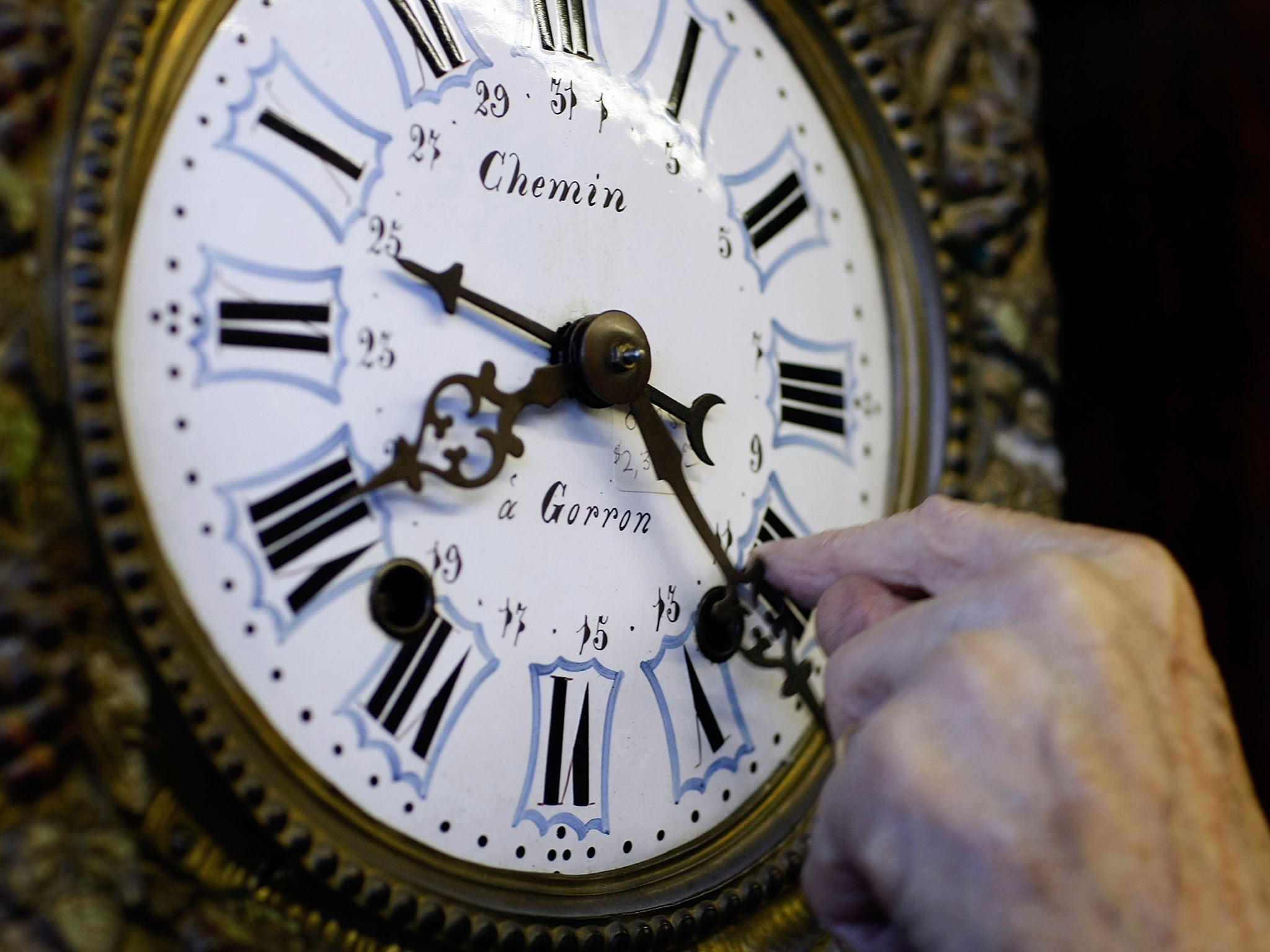Your support helps us to tell the story
From reproductive rights to climate change to Big Tech, The Independent is on the ground when the story is developing. Whether it's investigating the financials of Elon Musk's pro-Trump PAC or producing our latest documentary, 'The A Word', which shines a light on the American women fighting for reproductive rights, we know how important it is to parse out the facts from the messaging.
At such a critical moment in US history, we need reporters on the ground. Your donation allows us to keep sending journalists to speak to both sides of the story.
The Independent is trusted by Americans across the entire political spectrum. And unlike many other quality news outlets, we choose not to lock Americans out of our reporting and analysis with paywalls. We believe quality journalism should be available to everyone, paid for by those who can afford it.
Your support makes all the difference.The European Parliament is to vote on scrapping mandatory daylight savings time across the EU, in a move that could result in the continent ending its twice-yearly clock changes.
European Commission president Jean-Claude Juncker last year said he wanted to scrap rules that means all EU countries have to change their clocks in March and October – with a view to ending daylight savings completely.
The Parliament’s transport and tourism committee became the latest EU body to endorse the proposal in a report this week, clearing the way for the bloc’s parliament to hold a vote on the issue.
EU sources told The Independent the issue would likely be put to a vote of all MEPs from across the bloc in the last week of March.
Under the proposals to be voted on, the EU would no longer mandate the clock change and leave the choice up to member states. The committee recommended that the change be enacted from 2021, later than originally planned.
However, in practice member states would still be expected to coordinate time zones amongst themselves for simplicity’s sake – and the expectation is that they would move away from daylight savings time.
A European Commission consultation received 4.6 million responses out of 510 million citizens, with 84 per cent against the current practice of changing the clocks.
Three million of the responses were from Germany, however - which led to some EU diplomats to claim it was unrepresentative.

If MEPs back the plan in the vote later this month then they will have to enter negotiations with member states, who are split on the issue.
Member states who want to keep the old rules include the UK, Greece, and Portugal, while France, Denmark, and the Netherlands are among those undecided. Most other member states, most notably Germany, back the change.
The UK is expected to keep following EU rules until at least 2021, and possibly later under the withdrawal agreement negotiated by Theresa May – meaning it would likely be affected by the proposal if it appears promptly.
Proposals to scrap or amend daylight savings time have occasionally emerged in the UK, but have never come to fruition. The issue of clock changes can become an emotive issue, with warnings on both sides of children going to or coming home from school in the dark, higher or lower road accident rates, and higher or lower energy usage by households.

Join our commenting forum
Join thought-provoking conversations, follow other Independent readers and see their replies
Comments